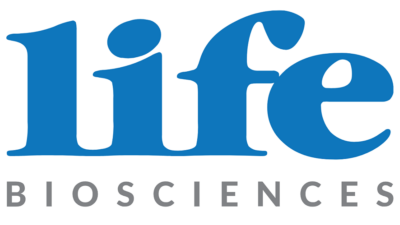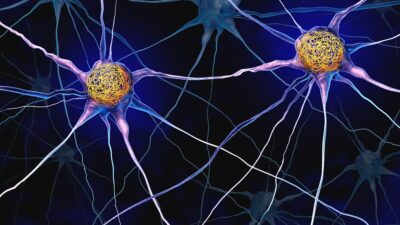The Best Thing to Donate Money to is the Fight Against Aging
- Vitalik Buterin talks about aging and why donating to research to delay or even reverse it is the most important cause.

A few days ago, LEAF representatives attended the Undoing Aging 2018 conference in Berlin, which was jointly organized by the SENS Research Foundation and the Forever Healthy Foundation. We invited one of the most professional Russian journalists writing about aging, Anna Dobryukha, to this conference, and she will write a series of articles and interviews in Komsomolskaya Pravda (KP) over the next weeks. As these articles are interesting to the global community, we decided to translate them for our blog.
Today, we publish the first article of this series, an interview that Anna conducted with Vitalik Buterin, the creator of the cryptocurrency Ethereum. Vitalik donated 2.4 million dollars to the SENS Research Foundation earlier this year, so let’s find out what Vitalik’s views are on rejuvenation biotech and life extension! The original article, “King of Ethereum” Vitalik Buterin: the best thing to donate money to is the fight against aging, is by Anna Dobryukha and has been translated by Elena Milova and Joshua Conway.
Vitalik Buterin, a brilliant young programmer and the creator of one of the two most valuable cryptocurrencies in the world, Ethereum, told KP why he gave $2.4 million for research on aging and why helping life extension is a worthy cause.
Bypassing Zuckerberg
The 24-year-old Russian-Canadian programmer is called one of the most influential people on Earth, being referred to as a “crypto-god” and “the king of Ethereum”. In 2013, he developed Ethereum, a unique platform for online services, and became the creator of the Ethereum cryptocurrency, which is now the second-most valuable in the world, behind Bitcoin. In 2014, Vitalik Buterin received the honorary award of the World Technology Network, ahead of Mark Zuckerberg.
Perhaps even now, this young genius is one step ahead of the creator of Facebook; at least, this is what the world’s leading life extension researchers believe. As you know, Mark and his wife Priscilla announced that within the next 10 years, they will donate $3 billion for research to combat cardiovascular problems, cancer, and other diseases. In February, Vitalik Buterin transferred $2.4 million in Ethereum to the SENS Research Foundation, the international anti-aging research foundation headed by the famous British gerontologist Aubrey de Grey. Last week, Buterin came to the Undoing Aging conference in Berlin, an event that SRF and the Forever Healthy Foundation organized and which was attended by more than 340 participants from 36 countries. The reporter from KP.ru was one of the few media representatives invited to this conference and turned out to be the only Russian journalist there.
Cancelling Aging, Preventing Cancer
Vitalik, wealthy people usually donate money towards research into and treatment of cancer, Alzheimer’s disease, and other diseases. Why did you decide to donate Ethereum to the fight against aging?
The first reason is just because there are many other people who donate to fight against cancer and other specific diseases, which, of course, is very important and necessary. The second reason is that there is strong scientific evidence that aging is the root of the most serious diseases.
Yes, KP has written about this more than once: cancer, diabetes, and other illnesses cause the overwhelming majority of deaths of older people. The world’s leading scientists have already proven that aging is the root cause of the health damage that leads to malignant tumors, stroke and Alzheimer’s disease. It turns out that if you slow down aging or even reverse it, you can save people from these serious illnesses.
Exactly. After all, if you do not prevent these diseases by eliminating aging, you will have to provide treatment to people who are already sick and suffering and whose quality of life is worsening, and the economy will be under enormous pressure because the treatment is often expensive, caregiving is needed, etc. These problems could be avoided. Studies of aging are very important right now, yet there are still very few people who invest money in this field, unfortunately.
Why do you think that is so?
Most people simply do not know or do not believe that aging can be successfully manipulated. However, I have read “Ending Aging” by Dr. Aubrey de Grey, I’m interested in scientific discoveries, and I see that this is plausible. Researchers can already extend the life of laboratory animals significantly, and it is necessary to refine these technologies in order to transfer them to humans. And this [research and full-scale clinical trials of anti-aging therapies in humans] requires money.
Biohacking
How do you feel about biohacking, whose supporters believe that the human body can and should be “cracked” in order to improve what is given to us by nature, including slowing down aging, with the help of the latest achievements of science and medicine?
It is very interesting, but I’m not doing it myself now. I still have a lot of time (smiles). So far, I plan to wait long enough to see the anti-aging medicine and technology industry grow into something really effective and safe.
There are a lot of approaches to aging research – what do you personally consider to be the most important?
It’s most important to run the research on people and not just wait for people to die [naturally]. There are already reliable biomarkers that can help assess the biological age of a person, and thanks to them, we can see how effective a therapy is within five years and don’t have to wait 30 to 50 years to see if a treatment can extend life. This can greatly accelerate clinical trials.
“I’m ready to invest more”
Do you have plans to continue supporting research projects on aging and life extension, or is your current contribution of 2.4 million dollars likely to be all?
Of course I’m ready to invest more into it. However, right now, I am mostly investigating what the scientists are working on, what the most promising directions are, and what else should be supported.
What, in your opinion, is the main problem currently hampering the fight against aging on Earth?
There is not enough public support. Huge resources, as I said, are invested in research and treatment of single diseases, but the problem is that if we focus only on specific diseases, this will only slightly improve the lives of people who are already chronically sick. Only a few years will be added to their lives.
Note from KP: Experts have estimated that a complete victory over cardiovascular diseases and cancer can extend the life of people by only 5 to 8 years on average.
Why live longer?
Vitalik, what would you say to other wealthy people who have financial opportunities and the desire to donate money for a worthy cause?
I would say that now, in the 21st century, there are many breakthrough technologies that are developing very quickly; artificial intelligence is moving to new frontiers, biology is very actively moving forward, and, in fact, there is a very good chance that in the next 30 or 50 years, we, as people, will be able to slow down or even reverse the aging process to the extent that we could live much longer. This is one of the most important tasks on which mankind can work. I would remind everyone that successful treatment of cancer, quitting smoking, and achieving victory over cardiovascular diseases can increase life by 5 to 8 years; yet, thanks to anti-aging technologies, it might be possible to prolong life by 50, 70, or many more years.
I would also say to people that if you have money, you can donate it to fight against aging; if you want, you can invest in this sphere, as there are a lot of interesting startups. If you are young and need to choose what to do, then you could study biology and think about what you can do to prolong a person’s life. It’s really the most important thing.
Sometimes, people ask why they should prolong their lives at all and say that to live longer is boring. In your opinion, when we have very long lifespans, what is worth living for?
There are so many things happening in the world and so many discoveries; a person can get new experience in various spheres of life, but now there is so little time for all this. If you can live much longer, then imagine how much you can do, see, and feel in five hundred years! How can a society change if there are not only young people but also people who have 200-300 years of experience while still retaining health and cognitive capacities. I am sure that the benefits of prolonging life will be just enormous.
To the point
The World Health Organization has recognized that people fall ill because of aging.
WHO has made revolutionary additions to the International Classification of Diseases (ICD-11). This was reported at a conference in Berlin by the head of the Department for the Prevention of Health Risks of the Central Research Institute of Health Informatization of the Ministry of Health of Russia, Daria Khaltourina. She leads an international group of experts who have developed and submitted a detailed and well-grounded initiative to WHO, explaining why aging itself should be considered a disease that leads to dysfunctions in the body, causing many other diseases in older people.
Aging has classic signs of disease; the function of various organs and systems of the body is disrupted, leading to related symptoms, including frailty, or asthenia of old age, explains Daria Khaltourina. Furthermore, there is convincing evidence that aging leads to the most unfavorable changes in the body, and heart attacks, strokes, cancer, diabetes, and other serious diseases develop because of it.
At this stage, WHO has approved the addition of indices to ICD-11; in these indices, a number of diseases will be accompanied by the adjective “age-related”, meaning that they are associated with age or caused by aging. This innovation will help to attract more attention to the problems of aging and research to combat it while opening up opportunities for official full-scale clinical trials of anti-aging drugs and therapies, as experts have explained.
We would like to thank Vitalik Buterin for taking the time to share his thoughts with us. If you want to help the fight against aging, please donate to help us continue our important work.








